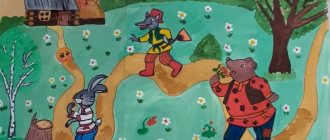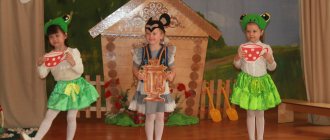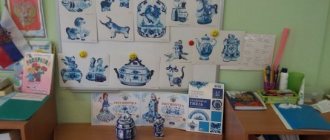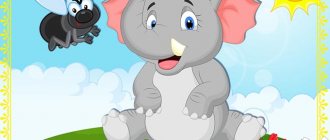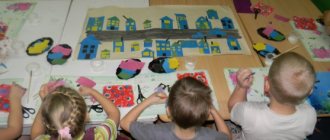Summary of the organization and management of household work of children in the senior group
Topic: “We wash and repair toys for younger children”
Goal: to teach children to participate in the organized work of a group of peers, to correlate their activities with the work of others and to understand that the work of the subgroup in which you work is part of the common cause of the team.
Management tasks: to create a work culture; to form children’s knowledge about the sequence of the labor process; encourage the desire to take care of younger children, cultivate a desire to work
Preliminary work: conversation about work, memorizing proverbs and sayings about work, reading poems, looking at illustrations and albums about various professions of adults, consolidating ideas about work through didactic games, direct participation of children in work activities.
Materials and equipment: basin, brushes, sponges, soap in a soap dish, tray, three towels, aprons for children, floor cloth
Organization and management of household work: creating a problem situation “Kids have dirty toys”, conversation, intriguing beginning, problematic questions, artistic expression, practical work, relying on children’s knowledge, explanation, demonstration, analysis.
Motivation for work:
V.: - Guys, remember, yesterday Lyudmila Veniaminovna, the teacher of the junior group, turned to us for help? Her children are still too young to wash and repair toys themselves. We're responsive guys, aren't we?
Goal setting:
She asked us to wash the toys for the children in her group, and we will help her and show her little children how to do it correctly. For this I need six willing people. Whoever will do this, come to me. We also need guys to select toys that need to be repaired. 8 guys came up.
— I suggest you divide into subgroups. I need 6 children to wash the toys (the children raised their hands if they wanted).
— I suggest to the other guys to put aside the toys that need repair: Tanya and Alyosha.
V.: - I am proud that we have such helpers in our group!
Work distribution:
Sasha: - We need to distribute responsibilities among ourselves.
V.: - Well done, you guessed that it would be more convenient to complete this task if all the work was distributed among each other: someone would wash the toys, someone would wipe them. Guys, wiping toys takes longer than washing them, and rinsing them even faster. Therefore, you need to assign two children to wash the toys, three to wipe them, and one to rinse them.
- Think about the order in which you will do the work, how should each of you act?
Tanya: - Alyosha and I will sort through the toys and serve them to the children.
V.: - Healthy. (the children quickly explained the next steps)
Children: - Whoever washed the toy, it must be placed on a tray so that the water can drain; another will rinse the toy and put it on another tray, and then those who will wipe them and put them in the basket will take the toys from this tray.
V.: - Now we need to agree on who will do what part of the work. When they work together, it is imperative to distribute the work and decide together who will do what. (the guys independently distributed the “positions” according to their strengths and capabilities). The children get to work, helping each other put on their aprons.
Management of the labor process. The role of the teacher:
I control the sequence of labor actions, recall the rules of joint actions based on a friendly attitude towards peers.
Completion of the labor process and evaluation of the work result:
After finishing the task, I remind the children not to forget to clean up their workspaces.
V.: - Well done guys, the toys are simply sparkling clean, we hope the kids will be pleased with your work. (at this time the teacher of the younger group, Lyudmila Veniaminovna, also came up)
L.V.: — Thank you guys for your coordinated, fast work. Our kids give you treats for your excellent work.
- Goodbye children, I hope that next time you will help us.
Children: - goodbye!
V.: - Remember, guys, what was our original goal?
Ksyusha: - The teacher of the younger group asked us to wash the toys for the kids.
V.: - That's right, you are great fellows. Everyone worked a little, but together they did a great job. Business before pleasure! Who else knows proverbs about work? (children's answers)
V.: - Thank you, you did a good job.
Abstract of GCD in the senior group on labor education
Abstract of educational activities for children 5-6 years old “Helpers”
Purpose: to clarify and generalize children’s ideas about work and professions. Objectives: • To consolidate children's knowledge about various professions. • Expand and activate vocabulary on this topic. • Develop speech, thinking, activity, independence. • Develop the ability to finish what you start. • Teach children basic work actions. • Foster respect for working people. Integration: Cognitive development, speech development. Equipment and materials: pictures with professions (cook, tailor, teacher, builder, doctor, hairdresser);
pictures of answers to riddles (needle, knife, book, crane, thermometer, mirror); ball. Basins with water, napkins, towels, aprons for each child. Preliminary work: looking at pictures, talking about parents’ professions, reading fiction, board and didactic games on this topic. Progress of the activity
Children stand in a circle and greet each other: Hello golden sun, Hello blue sky, Hello you, hello me, Hello all my friends! Children sit on chairs. The teacher reads a poem: There are many different professions, Photographer, cook and teacher, Driver, janitor and builder, And we can’t count them all. It doesn’t really matter who we are, because the main thing is to love your work! - What is this poem about? (children's answers) - What is a profession? (children's answers) - A profession is something that is done every day and that is useful for other people. The profession needs special training, and it is important that the person likes it and likes it. —What would you like to become when you grow up? (children's answers) - Now let's check how well you know the professions. Word game “Think, guess, find.” (There are pictures of professions on the board. The teacher makes riddles about objects of labor, the children guess and name the profession, who needs this tool, the object of labor for work, and the answer-picture is attached next to it). 1. I am short, thin and sharp. I look for a path for myself with my nose, I drag my tail behind me. (needle and thread) 2. There is a magic glass. It reflects everything. (mirror) 3. I am very sharp and steely. I will help you cut the bread. But be careful with me. I can cut your finger. (knife) 4. Not a tree, but with leaves. Not a shirt, but sewn. Not a person, but a storyteller. (book) 5. With my long neck I will turn the heavy load. Where they order, I will put it, I will help a person. (crane) 6. I’ll sit under your arm, 7. And I’ll show you what to do. Or I’ll put you to bed, Or I’ll let you go for a walk. (thermometer) - Well done, you solved all the riddles correctly. Now everyone stand in a circle and say who is doing what. Word game "What does it do?" (the teacher throws the ball and asks what the cook is doing - the child finishes the sentence - preparing food). Builder, milkmaid, teacher, driver, fireman, hairdresser, postman, tractor driver, pilot, doctor, artist, seamstress, baker, photographer, janitor, teacher (the last one to name the teacher). - Who else helps the teacher in the group? (children's answers). What does she do, what work does she do? (children's answers) - She has a lot of work: cleaning the group, washing the floors, setting the tables, and helping you get dressed. Maybe we can help her today too. (children's answer). Let's put things in order in the doll's corner, wipe off the dust, and wash the chairs. - To do this, we will divide into three teams: children take pictures: those with furniture - wash chairs, those with toys - wipe the dust on the shelves and toys; whoever has the dishes, wash the dishes and dust the cupboard. Agree on who will take out and put away the toys, who will wipe the dust, who will wash the toys, who will wipe them dry and put them back in their place. The team that gets the job done faster can help other guys. — What do you need for work? (children's answers) Put on aprons, take napkins, bowls of water and get to work. After finishing work, invite a nanny. She thanks the children for their help. — You liked working and helping your elders. Was it difficult? (children's answers) - And people say: “Time for business, time for fun.” What does it mean? (children's answers) Yes, we've worked, now we can relax. Thank you.
We recommend watching:
Summary of educational activities in the senior group “Northern Adventures” Card file of games on labor education for preschoolers Parent meeting - entertainment in the preparatory group for school Summary of a lesson on labor education in kindergarten
Similar articles:
Training children of the younger group in labor activities
Summary of a mathematics lesson in the senior group of kindergarten. Geometric figures
